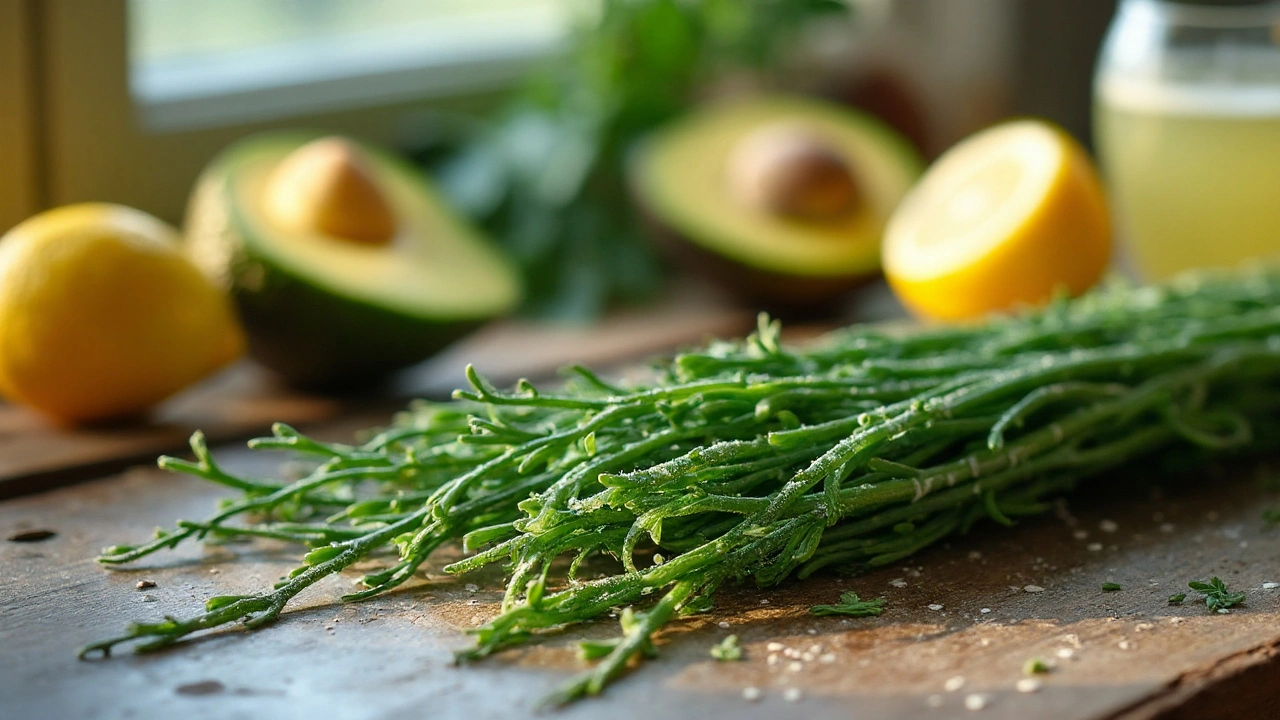Marine Superfood: What It Is and Why It Matters
When you hear the word "superfood" you probably think of berries or nuts. But the ocean hides its own power foods too. Marine superfoods are sea‑derived foods that pack a lot of vitamins, minerals, omega‑3 fatty acids, and antioxidants into a small serving. Because they grow in a salty, mineral‑rich environment, they often contain nutrients that land‑based foods lack.
Adding marine superfoods to your diet can improve heart health, support brain function, and give your gut a boost. They’re also a sustainable choice – many sea plants grow fast and need no land or fresh water. Below you’ll find the most popular options and practical tips on how to eat them every day.
Why Marine Superfoods Matter
First, marine sources are rich in omega‑3s like EPA and DHA. These fats lower bad cholesterol, reduce inflammation, and keep your brain sharp. Fish such as salmon and sardines are classic examples, but algae and seaweed also contain these healthy fats.
Second, sea vegetables are loaded with iodine, calcium, iron, and vitamin K. Iodine supports thyroid health, while calcium and iron help bone strength and energy levels. For instance, kelp can deliver up to 150% of the daily iodine requirement in just a tablespoon.
Third, many marine superfoods have unique antioxidants. Spirulina and chlorella, both blue‑green algae, contain phycocyanin, a pigment that fights free radicals. Regular intake may help protect cells from damage and support a healthy immune system.
Simple Ways to Add Marine Superfoods to Your Diet
Start with seaweed snacks. Nori sheets, used for sushi, can be crumbled over salads, rice bowls, or scrambled eggs. The salty crunch adds flavor without extra calories.
If you like smoothies, blend a teaspoon of spirulina or chlorella powder. The taste is mild, and you’ll get a boost of protein and antioxidants. You can also mix the powder into a glass of juice or plain water if you prefer.
For a quick omega‑3 hit, keep a can of sardines or smoked salmon in the pantry. Add them to whole‑grain toast, mix into a pasta sauce, or simply eat them with a squeeze of lemon.
Try incorporating kelp powder into soups or stews. A pinch thickens the broth and sneaks in iodine and minerals. It works especially well in miso soup or tomato‑based dishes.
Lastly, look for fortified foods. Some breads, cereals, and dairy alternatives now contain marine algae oils. Check the label for “omega‑3 from algae” to get the benefits without eating fish.
Remember, a little goes a long way. Start with a small serving and see how your body reacts. If you have thyroid issues or are pregnant, talk to a health professional before loading up on iodine‑rich seaweed.
Marine superfoods are a simple, tasty way to level up your nutrition. Whether you choose a sprinkle of nori, a scoop of spirulina, or a can of sardines, you’re giving your body a marine‑sourced boost that can improve heart health, brain power, and overall vitality.

Samphire Supplements: Why This Sea Veg is the Next Big Health Trend
Discover why samphire is gaining traction as a powerful dietary supplement. Learn its nutrient profile, health benefits, safety tips, and how it stacks up against other sea‑vegetable powders.
More Detail